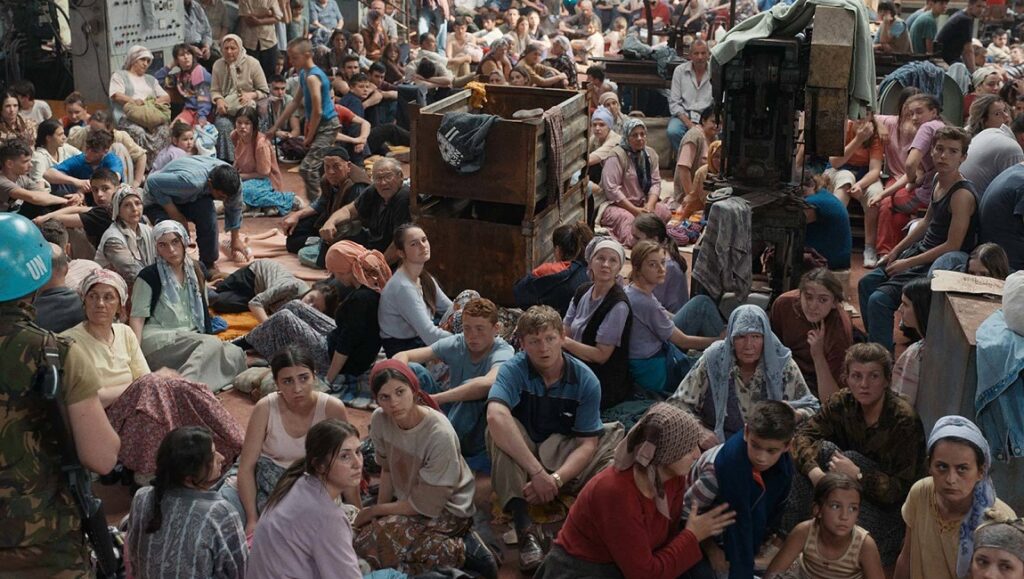The spectre of doom looms over the besieged town of Srebrenica for the entirety of Jasmila Žbanić’s Quo Vadis, Aida?, but the portended massacre only occurs towards its end, summed up in just a handful of shots. And all the better for the film — even before the breakout of actual shelling and gunfire, fear, anxiety, desperation, hopelessness, anger, and confusion hang palpably in the air. In any conflict, such tensions are present at every level of command. And in any conflict, the first to succumb are its people.
Žbanić’s sixth feature deftly weaves these oft-disparate threads into an intricate yet urgently harrowing narrative that firmly rebukes the fetishization of war and violence as simply litanies of unknown, unseen agents fighting over territorial abstractions. Days before the Serbian army overruns the United Nations base in Srebrenica and forcibly coerces the thousands of Bosnian civilian refugees out, the UN peacekeepers navigate a threefold crisis: resolving the logistical constraints of housing the refugees and admitting many more, negotiating with the clearly mightier Serbs, and contending with radio silence from unseen superiors who don’t have the political courage to decisively counter any military aggression. At the epicenter of these developments is Aida, a Bosnian interpreter whose primary role is to communicate information from the peacekeepers to the civilians. But as negotiations crumble in favour of the enemy and incoming hordes of refugees clamour to enter the base, she faces increasing strain as she delivers empty promises to an unbelieving audience.
A muted anger pervades Quo Vadis, Aida?, not just towards the brazen criminal injustices undertaken in broad daylight but also against the sheer helplessness of its victims and their supposed guardians. The UN finds its political backbone systematically bent and broken by the swaggering Ratko Mladic, kingmaker and mastermind behind the eventual genocide; the organization’s walls are painfully and inevitably breached. Aida, whose family waits outside the base, has to fight for them the same privileges she is accorded — while doing so constitutes a breach of her professional duties, who is anyone to judge her personally as a wife and mother, and who is to act on her behalf? By situating our gaze on Aida throughout, Žbanić draws us into a frenetic and nauseating losing battle, in which survival alone makes for victory. In the face of inaction, her fraught desperation and often selfish actions can only be read as heroism; the abstraction of mass atrocities may only demand from individuals a single response to the query “Quo vadis?”: my family, my people.
Originally published as part of TIFF 2020 — Dispatch 4.


Comments are closed.